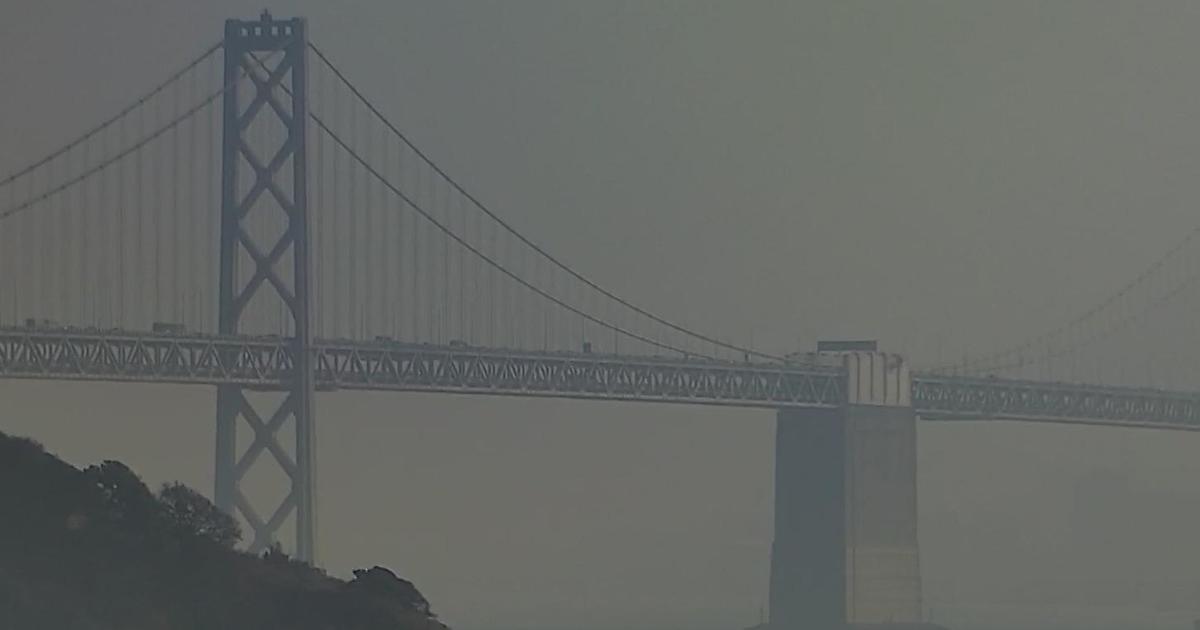Russia Boycott Boosts Business for North Bay Caviar Producer
SAUSALITO (KPIX) -- Companies producing California caviar say years of hard work raising awareness about the quality of their local and sustainable product is catching on just as the world rethinks its support of Russian products since the invasion of Ukraine.
"It's something that people are looking for. It's reliable, it gives you that feeling of sustainability; local, that organic family techniques," said Deborah Keane, the CEO and founder of California Caviar Company. "Having this opportunity is so important because people need to know and want to learn more about caviar."
The company started in 2007 providing farmed caviar in the U.S. before restrictions on the wild caught product began domestically. At the time there were only a handful of farms, now there are more than 2,000 around the world, according to Keane.
Her business has a tasting room in Sausalito with local product coming from a farm in northern California.
"This is our time and we have been doing this for many, many years, more than I like to count," she told KPIX. "It takes ton of money to be able to raise their sturgeon and to finally have that acknowledgement that your hard work has paid off is pretty satisfying."
A fish can be raised for 10 years to reach six feet in length before it can provide a small percentage of usable roe in caviar. The hard work has helped to create a quality product but misinformation and a lack of transparency are still challenges for the industry.
"It's really an opportunity for us to showcase this amazing California product that's coming from our backyard," said Petra Higby, the president and co-founder of The Caviar Company. "We even have some underhand comments of, 'Oh well you know only good caviar comes from Russia.'"
Higby started her business with her sister in 2015 with a tasting room in Tiburon and a retail store in San Francisco. They sell California caviar as well as imported products.
Customers are still confused about the available caviar labeled as "Russian" by suppliers. While Baluga caviar that comes from wild caught fish isn't legal in the U.S. because it was ruled as overfished, you can purchase products from China, Israel, and other countries that are "Russian" in style.
"It's always been a challenge we've taken on and we've been excited about, to showcase this California product," Higby told KPIX 5. "With what's going on in the world today, it's getting people's attention and it's a great opportunity to showcase this local product."
The invasion of Ukraine earlier this year encouraged people to stop purchasing any products from Russia and while caviar may not be from that country, people are still asking for it. This creates a chance to help customers try the California creation, a move local chefs have already made in their kitchens. Some of that caviar, comes from white sturgeon native to the San Francisco Bay.
"It is amazing that we see people coming in and asking for Beluga for example," she said. "Beluga has been banned for over a decade now."
Keane says it is important that customers remember that caviar should simply be fish roe and salt. She encourages the public to ask about the ingredients, type of fish, and country of origin. Information that is required to be labeled, she explained.
"It sounds glamorous but it's very gritty. There's a lot of grit along with the glamor in the caviar world," Keane said. "It's something that we've worked really, really hard for and it feels amazing."



